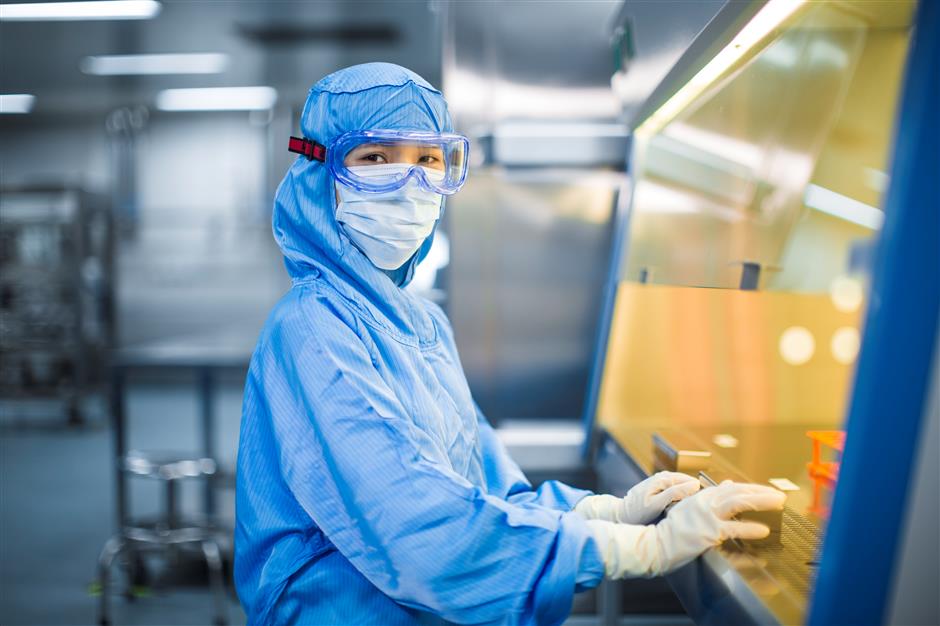Rapid growth for biomedical firms

A female worker works at a biomed workshop of Henlius.
As Songjiang continues to optimize its biomedical industry, the district is becoming an industrial cluster of leading and backbone biomedical enterprises, according to an official with the Songjiang Science and Technology Commission.
Songjiang is the location of 82 key biomedical companies, of which 10 have an annual output value surpassing 100 million yuan (US$14.9 million).
As the “main battlefield” of the district’s biomedical industry, the 700 mu (46.7 hectares) biomedical industrial park inside Songjiang Economic Development Zone has attracted high-quality projects such as the high-tech biomedical industrial base of Xiuzheng Pharmaceutical Group and the industrial base of Henlius.
The biomedical industry in Jiuting Town is also developing rapidly. About 1,200 mu of land in the town’s Jiuke Oasis Park will be allocated to develop biomedicine, biomedical engineering, smart health and bio-service industries.
The town will further introduce biomedical research institutes such as the International Hospital of Fudan University, the Second Headquarter of Shanghai Medical Association and the Shanghai Medical Association Library.
While developing its biomedical industry, the district has always aimed to be strongly connected with global science and technology frontiers.
The G60 innovation park in Sheshan Town created the world’s first genetically edited cloned monkeys in January this year.
Songjiang also pays attention to developing its folk medicine.
Yexie Town of Songjiang District signed an agreement this year with the China Council for the Promotion of Nationalities Trade about developing itself into a characteristic folk medicine town.
The biomedical industry in Songjiang now covers the majority of industrial chains such as biomedicine manufacture, medical service and medical engineering, with each field led by its backbone enterprises.
“With its solid foundation, Songjiang is very promising to become a leading district in Shanghai’s biomedical industrial development,” said an expert at the biomedical industry promotion center of Shanghai Science and Technology Commission.
The district is continuing to negotiate with key medical companies in order to introduce high-tech projects.
Hua Medicine, a leading clinical stage innovative drug development company in China, is to site its research center in Songjiang, focusing on diabetes and central nervous system drugs development.
HYRZ Bio Tech, a company involved in immunocell therapy development, has also expressed its wish to built a research and production center in Songjiang.
Policy support from both district and city-level governments is helping Songjiang’s biomedical industrial development.
A plan issued by the Shanghai government last year rules that starting from 2018 medical companies that obtain new drug certificates and plan to manufacture and sell new drugs in Shanghai would be granted a maximum subsidy (not surpassing 10 million yuan) equal to 10 percent of its first-stage research budget.
The district government will also make plans to support the development of backbone biomedical companies, improve the industrial environment and continue to introduce large or high-end biomed projects at home and abroad to Songjiang.
















